Trauma is a highly distressing event that can profoundly affect a person’s mental health. Whether it involves surviving an attack, experiencing a natural calamity, or enduring the loss of someone dear, trauma can leave enduring emotional wounds. Its effects encompass a range of issues, such as anxiety, depression, post-traumatic stress disorder (PTSD), and other mental health disorders. It is crucial to acknowledge the profound impact trauma can have on an individual’s well-being and seek appropriate support and treatment.
What does Compassion Focused Therapy for Trauma Entail?
Compassion-focused Therapy (CFT) is an evidence-based approach designed to alleviate suffering and foster healing through the cultivation of compassion. Developed by psychologist Paul Gilbert, CFT proves beneficial for individuals who have encountered trauma. This form of therapy concentrates on cultivating self-compassion and compassion toward others as well as receiving compassion from others. By fostering a mindset centered around compassion, CFT helps individuals acknowledge their pain and suffering while creating an environment for healing and personal growth.
CFT is based on the understanding that compassion is a human necessity. When people go through difficult experiences, they often tend to blame themselves, feel overwhelmed with shame and guilt, and struggle with self-criticism. Compassion-focused therapy for trauma aims to shift their perspective from self-blame to self-compassion. Through specialized techniques and exercises, individuals learn how to develop a kind and understanding attitude toward themselves and realize they are not at fault for the trauma they have endured.
The Principles And Techniques Of Trauma Compassion-Focused Therapy
Compassion-focused therapy for trauma is rooted in critical principles that guide the therapeutic process. These principles include:
- Understanding the basis of compassion: CFT acknowledges that compassion is a natural human capacity that has evolved to support individuals in caring for themselves and others. People can cultivate compassion by first understanding its psychological foundations.
- Cultivating mindfulness and self-compassion: Mindfulness plays a role in CFT. By practicing mindfulness, individuals can become more aware of their thoughts, emotions, and physical sensations without judgment. This awareness helps them develop self-compassion and respond to their suffering with kindness and understanding.
- Emphasizing compassion for others: Compassion-focused therapy also encourages individuals to extend empathy toward others.
By developing empathy and gaining an understanding of others’ experiences, individuals can build stronger connections and work to heal their existing relationships.
Compassion-focused therapy (CFT) incorporates various techniques involving imagery and visualization to enhance compassion cultivation. These exercises help individuals create images that evoke feelings of warmth and compassion, activating the brain’s compassionate systems.
Benefits of Compassion-Focused Therapy for Trauma
Trauma compassion-focused therapy offers advantages for those who have experienced trauma.Some of these benefits include:
- Reducing self-blame and shame: Trauma survivors often tend to blame themselves for what they have been through, resulting in feelings of shame and guilt. Compassion-focused therapy helps individuals shift their focus from self-blame toward self-compassion, thereby reducing feelings of shame while fostering self-acceptance.
- Enhancing emotional regulation: Traumatic experiences can disrupt an individual’s ability to regulate their emotions effectively, leading to intense mood swings and emotional instability. Through CFT techniques, trauma survivors learn how to recognize and effectively manage their emotions, promoting stability and overall well-being.
- Boosting self-esteem and self-worth: Trauma can significantly impact an individual’s self-esteem and value. Compassion-focused therapy is an approach that supports individuals in cultivating kindness and understanding toward themselves, which fosters self-acceptance and boosts self-esteem.
One significant benefit of compassion-focused therapy for trauma is its impact on interpersonal relationships. Trauma can strain connections and make it challenging to trust and connect with others. Through fostering compassion toward others, CFT helps survivors of trauma rebuild and strengthen their relationships, creating a sense of belonging and support.
Furthermore, compassion-focused therapy equips trauma survivors with coping skills and resilience-building techniques. Individuals gain tools to navigate future challenges with increased resilience by developing self-compassion and extending compassion to others.
To maximize the benefits for trauma survivors, compassion-focused therapy can be effectively combined with other evidence-based approaches. For example, integrating CFT with cognitive behavioral therapy (CBT) or eye movement desensitization and reprocessing (EMDR) can enhance the effectiveness of trauma-focused interventions.
CBT helps individuals identify and challenge thought patterns related to their traumatic experiences, while EMDR facilitates the processing and resolution of these memories. When combined with trauma compassion-focused therapy, these approaches offer a treatment framework that addresses both the emotional and cognitive aspects of trauma.
Discover CFT at Ocean Coast Recovery Center
At Ocean Coast Recovery Center, we deeply understand trauma’s impact on a person’s life. That’s why the comprehensive approach at our Huntington Beach treatment center includes compassion therapy. Our luxurious detox and inpatient treatment facility in Orange County creates a supportive and uplifting environment for our clients, fostering a sense of safety and empathy.
We collaborate with our clients through therapeutic techniques, including compassion-focused therapy for trauma, to promote sobriety and positive behavioral changes. Our Huntington Beach drug rehab team is made up of professionals committed to helping individuals who have experienced trauma find hope, healing, and long-term recovery.
If you or someone you care about is struggling with the effects of trauma, we encourage you to reach out to us at Ocean Coast Recovery Center. Together, we can embark on a journey toward healing and a brighter future.





